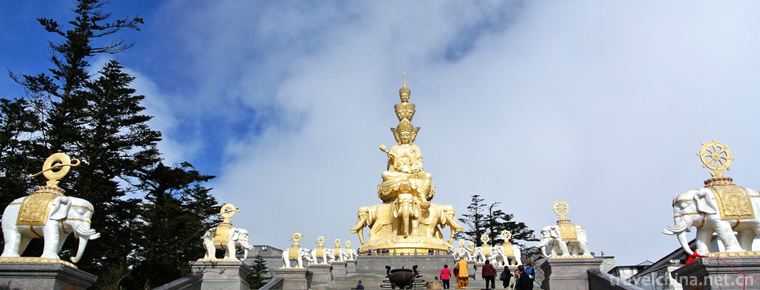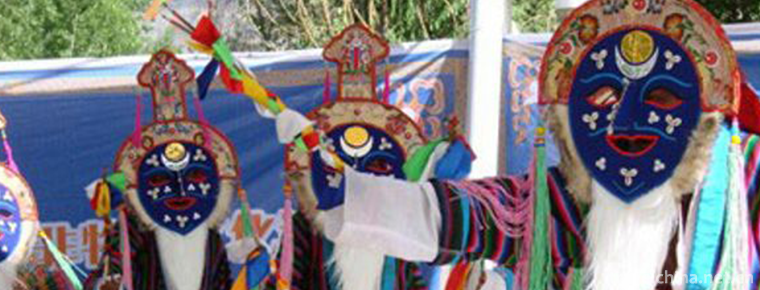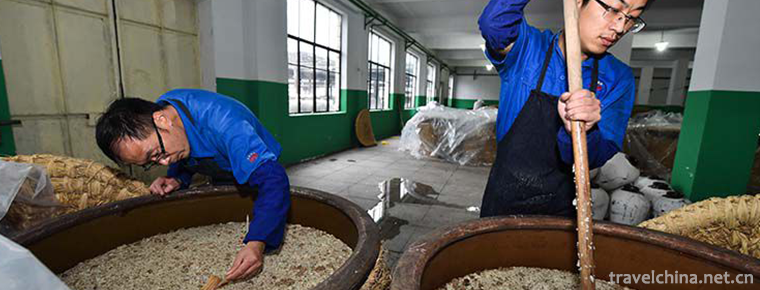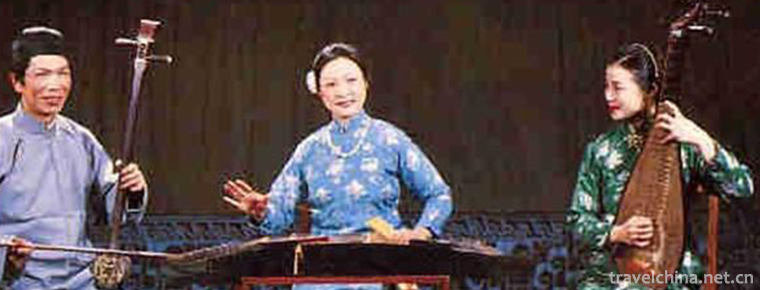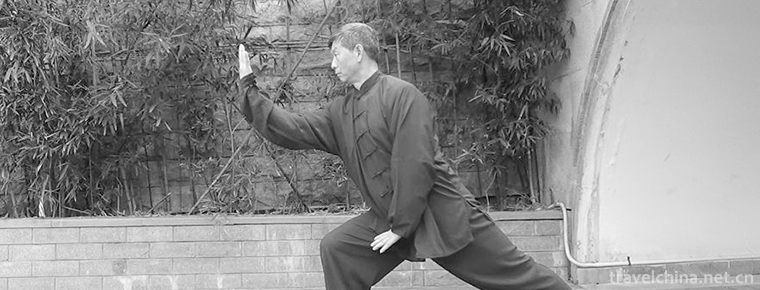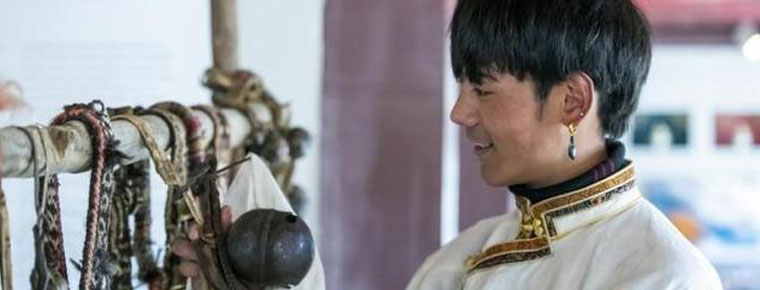Mantis Boxing
Mantis Boxing
Mantis boxing is one of the famous Chinese traditional Wushu schools, and it is a kind of hieroglyphic boxing. It is one of the four famous boxing in Shandong Province and one of the first nine schools of traditional Wushu systematically studied by the Wushu Sports Management Center of the State General Administration of Sports.
Mantis Quan originated in the late Ming and early Qing Dynasties. It is said that it was created by Wang Lang, an anti-Qing personage in the late Ming and early Qing Dynasties.
The formation and development of mantis boxing is a combination of the merits of many martial arts schools in the late Ming and early Qing dynasties. According to the theory of "the names of the eighteen ancestors of boxing" contained in the spectrum of boxing, it can be said that mantis boxing is the carrier of ancient Chinese martial arts culture. Studying this kind of boxing is very helpful to understand the martial arts in the Ming and Qing dynasties.
On June 7, 2008, Mantis Boxing was approved by the State Council and listed in the second batch of national intangible cultural heritage list.
Historical Development
Mantis boxing is one of the famous Chinese traditional Wushu schools, and it is a kind of hieroglyphic boxing. It is one of the four famous boxing in Shandong Province and one of the first nine schools of traditional Wushu systematically studied by the Wushu Sports Management Center of the State General Administration of Sports. The formation and development of mantis boxing is a combination of the merits of many martial arts schools in the late Ming and early Qing dynasties. According to the theory of "the names of the eighteen ancestors of boxing" contained in the spectrum of boxing, it can be said that mantis boxing is the carrier of ancient Chinese martial arts culture. Studying this kind of boxing is very helpful to understand the martial arts in the Ming and Qing dynasties.
Mantis boxing is a great treasure of Chinese traditional martial arts and a wonderful flower of Chinese martial arts. In her more than 200 years of inheritance recorded in history, successive generations of heroes and handsome talents have multiplied, and their influence is increasing day by day.
Li Zanyuan, formerly Li Li, was given the name Zanyuan by Emperor Shunzhi of the Qing Dynasty. Shunzhi Twelve Years (1655) won the Scholars'Entrance Examination. In April of the next year, he became the imperial governor of Shandong Dao. Because of its forthright speech, the emperor was called "True Royal History". In the thirteenth year of Kangxi (1674), he was promoted to the warlord of the Ministry of Military Affairs to supervise and arrest the right waiter. Li Zanyuan holds important office and has a distinguished family, but his family rules are very strict. Zeng Ting's "Four No Poems" is the motto of the Godfather, so his 13 sons (17 Zanyuan, 6, 7, 8 and 9 of them died) have no habits. From generation to generation, there was a good talk about "three generations and eight men".
Li Bingxiao is a great-grandson of Li Zanyuan's 17 sons. He was born in Qianlong in Qing Dynasty. He was smart and eager to learn from his childhood. He inherited his family style. He had both culture and military skills. He was also proficient in medicine. He had the name of paying tribute before he reached the weak crown. One year, when he failed in the rural exam, he simply abandoned writing and went to military service. Li Bingxiao was an open-minded man. He hid in Lin Quan and made exclusive acquaintances with the world's elite and the swordsmen of rivers and lakes. By chance and coincidence, he became a monk of Tao and called him "the person who ascends the skyscraper". Li Bingxiao traveled all over the world with his skills, visited all the high-ranking people in Wulin, studied modestly and diligently, explored the true meaning of Chinese Wushu, and integrated the world's eighteen martial arts. He went from Wu to Tao and elucidated Wu with Tao, and finally achieved great success.
Mantis Quan originated in the late Ming and early Qing Dynasties. It is said that it was created by Wang Lang in the late Ming and early Qing Dynasties. He was wealthy in Qijiadao and loved martial arts. He had invested thousands of money in Shaolin to study art and devoted himself to serving the country. He returned to Shandong indignantly, organized the Rebel Army, and fought against the Qing court. On one occasion, the whole army was almost annihilated because they were outnumbered, so they went to the foot of Laoshan alone and hid at the fishermen's home. The Qing soldiers came after them. At Huayan Temple in Laoshan in Qiji, they found the master monk of Huayan Temple, who had studied art in Shaolin before. After seeking shelter, the elder brother came out of the temple and rushed in, ordering him to change his monk's clothes, cut off his hair, dress as a monk, and burn his face with boiling water. Red and swollen, he was told to sleep in the Zen Chamber, cover the quilt, not to make a sound. Russian hectares of Qingbing search, the elder brother said that this is a new monk, suffering from smallpox disease, Qing officers were afraid of being infected, only looked at the seventy-first glance to withdraw. He was totally unrecognizable and concealed from the Qing troops. The elder brother said to Qi that the outside wind was still very tight. He was asked to be a monk here and avoid the fire. He agreed at Qi because he was the leader of the Rebel Army. He was sometimes secretly sought by his old subordinates. He stayed at Qi Shenzhen and was not easy to see visitors. He had to sign with the old subordinates. Everyone who came to him must write a word "king" and give it to the guard monk. Only the guard monk allowed him to enter. (The word "Wang" means the overlap of the two words "Yu Qi") Later, Yu Qisuo said that his surname was Wang Lang, who was called Wang Lang. Lang was a man's name. Later, it was mispronounced Wang Lang and Wang Lang, whose name has been passed down to this day.
The main methods of Man Quan are: hook, building, picking, hanging, sticking, sticking, sticking, sticking, leaning, cunning, advancing, collapse and typing Twelve-Character formulas. Requirements: "Do not play a tricky, a tricky fight, a dozen a few" series of attacks.
Generally speaking, the style of mantis boxing is the momentum of being quick and brave, decisive and forward. Its characteristics are: forward and sideward attack, virtual and real mutual, long and short, combined with rigidity and softness, hand and foot, making people elusive and defensive; the use of a series of tightly fastened means to direct the opponent, so that the enemy has no chance to breathe. There are abundant techniques, including long fighters, short and quick stolen hands, elbow-to-elbow grabbing, and trips to wrestle. In routine exercises, we should be quick but not disorderly, rigid but not rigid, soft but not soft. The routines are well-structured and skillfully connected. External merit is the iron sand palm, while internal merit is the Luohan merit. Practicing Mantis Boxing regularly can cultivate people's strong fighting spirit and agility.
The core of traditional Wushu is to lead modern people to learn the necessary defensive skills such as fitness.
Promote the connotation of Chinese culture and martial arts.
Mantis Boxing was created by Wang Lang, a native of Jiaodong in the late Ming and early Qing Dynasties (one is Wang Wencheng, the other is that Wang Lang and Wang Wencheng belong to the same person). It has a history of more than 300 years. Legend has it that Wang Langzu, who inspected the movements of Mantis catching cicadas, took his attitude, endowed them with Yin and yang, rigidity and softness, and applied the above-and-below, left-and-right, forward-and-backward, forward-and-backward methods to create the Mantis Fist method.
In the ancient Mantis Document "Can You You Yong" (Liang Xuexiang wrote in Daoguang years), it is recorded as "the former teacher Wang Lang, as an eight-elbow, chaotic, secret hand, but on the virtual and solid, firm and soft, its wonderful and invincible". "Wang Lang's general enemy of mantis" is mentioned in "The Name of Eighteen Fist Ancestors in Mantis Fist Book". That is to say, during the Daoguang period, the mantis ancestor known was Wang Lang.
After the introduction of Mantis Boxing from Laiyang, from Jiang Hualong, Song Zide, Cui Shoushan, Wang Yushan, Mr. Jiang Hualong, Song Zide, Cui Shoushan, Wang Yushan in the late Qing Dynasty and early Republican period to Yantai, Yantai, Qingdao successively to Yantai, Qingdao to teach the next generation of mantmantis boxing, the national gymnums to teach mantmantis boxing spread throughout Jiaodong, because of many practitioners, gradually formed the three branches and four schools of Yantai Mantis now Yantai Mantis door, respectively: the Taiyang three mountain pulse of the three polar mantis, the Taiyanyanshan pulse, Yantaitai mantmantis, TaijihahahahahahahahahahahahahahahahahahahahaHydra The seven-star mantis of Linjingshan Series in Yantai, the six-in-one mantis of Longkou and Zhaoyuan in Linshichun, etc. In 1983, in the work of "rescuing, excavating and sorting out the national martial arts heritage" carried out by the National Sports Commission, Mr. Liu Xiyun, a folk boxer in Laiyang, dedicated his ancestral "Mantis Fist Score" to the country and won the "Lion Prize". At the same time, Mr. Wang Yuanliang, son of Mr. Wang Yushan, one of the most famous "three mountains" in the world, was identified as the successor of Mantis Quan of the Di School, and taught it in Laiyang. Under this opportunity, the Wushu movement in Laiyang became popular for a while. Most of the boxers practicing Mantis Boxing in Laiyang are Mr. Wang Yuanliang's apprentices. In addition, mantis boxing has been widely spread throughout the country and even in many countries around the world. According to textual research, it has a deep origin with Laiyang Mantis boxing.
Origin
According to legend, this fist originated in the reign of Qianlong in Qing Dynasty (also mentioned by Emperor Wudi of Liang Dynasty in the Southern and Northern Dynasties), and was visited by a martial artist named Wang Lang.
After the failure of Youwu, he happened to see the clever and intense situation of Mantis catching cicadas, which inspired him. Then he caught many mantis and often played with them, observing and studying every little gesture of mantis. In spiritual aspect, he absorbed the mantis's spirit of high concentration and resolute wit; in tactics, he absorbed the quick dexterity of its clever use of two forearms to hook, wrap, hexagram and split; in body, he absorbed the flexibility of its waist, bend, twist and rotation; in footwork, he absorbed its steadfastness, stability and the sudden leap of forward and backward flickering. He compiled some clever boxing attack and defense combinations for hard training, and once again visited friends to win the match. Wang Lang constantly summarized his experience in the process of visiting friends to learn martial arts, learned from each other modestly, enriched and improved the achievements he had made, thus creating the initial Mantis boxing. In the late Ming and early Qing Dynasties, Wang Langzhi (known as Wang Langzhi) went to Shaolin Temple to learn art. After the completion of the art, he fought with Han Tong, lost the battle and rested under the trees, thinking hard about how to break the enemy. See a mantis edge tree down, is to draw grass. Mantis is a knife hook, a knife hit, transition degree, flicker flexible, is to take the mantis back to the temple, day-to-day trial, and to develop such Mantis tricks as hooking and picking. One day while practicing under a tree, an ape took its clothes.
It was after the apes that they could not get close to them. It took a long time for the apes to abandon their clothes. Wang Langsi imitated the apes'footprints and changed their angles to study the monkeys' footsteps. So far Wang Langzhi's mantis boxing has initially formed. Soon someone wrote a score. The first one is "Eighteen Arhats Short Preface". It says: Short Fighters, written by Shaolin Fuju Zen Master, have detailed annotations and are proficient in sense and reason. And there are "short fight essentials", "eight fight eight don't fight", "eight just twelve", "long fight is short fight, short fight to long fight" and so on. Practitioners of Mantis Boxing "take this as the general score, or known as the old score". It can be seen that there was only one kind of Mantis Boxing at that time. After that, it was passed on and evolved gradually, and then it was divided into three groups.
spread
Mantis boxing is prevalent in Laiyang County, Shandong Province (now Laiyang City). Zhao Zhu, Li Bingxiao, Liang Xuexiang, Jiang Hualong, as well as Li Kunshan, Wang Baoshan and Cui Shoushan in modern times are all well-known inheritors of Mantis Quan. Especially the last three outstanding representatives of Mantis Quan in modern China are known as the "Three Mountains" of Laiyang by the martial arts circles.
Qixia, Shandong Province
Mantis boxing is a kind of traditional boxing which imitates the evolution of Mantis movements. It is widely spread in Jiaodong area of Shandong Province. It is one of the excellent types of Chinese martial arts and is listed as a national martial arts performance competition. The vast areas of Jiaodong represented by Qixia, Haiyang and Laiyang are the main inheritance sites of Mantis boxing, which has been extended to more than 10 provinces and cities in China and more than 20 countries and regions in the world.
Mantis Quan originated in the late Ming and early Qing Dynasties. It is said that it was created by Wang Lang in the late Ming and early Qing Dynasties. In the mid-nineteenth century, Qixia's Mantis Boxing entered its flourishing period, and a number of masters of Mantis boxing, such as Mizhofu, Mihua Cai, Mihua, Sun Ying, Sun Zhongmin, Yang Xuehai, Yang Xuezhen, Yang Xuewu, Yang Zhenbao, Yang Dechang, Zou Liang, appeared. The small Mantis Fist created by Zhande of Qixia Basket People is passed down to Zhang Hongxi, Yi Shouchun and Shan Jinsheng. Eight-step Mantis Boxing originated from Qixia and was introduced to Taiwan and other parts of the world from Qixia. Wei Xiaotang and Wei Yanyi brothers are important successors.
By the 1920s, Qixia Mantis Quan had become very popular, spreading 54 villages, boxing houses throughout urban and rural areas, and practitioners amounted to thousands of people. After liberation, the development of Mantis Boxing tended to be at a low ebb. In the 1980s, the activities of inheritance entered an active period, entered the 1990s, and again entered a low ebb. At present, the Mantis Boxing Association has been established, with more than 100 practitioners.
In the centuries since its emergence, Mantis Quan has gradually formed a unique style with distinctive features, both long and short, rigidity and flexibility, courage and rapidity, and strong practicability through the summary, refinement and innovative development of past generations of martial artists. It mainly includes Taiji Mantis, Plum Flower Mantis, Seven-Star Mantis, Six-in-One Mantis, Small-Frame Mantis and other schools. Taiji Mantis fist, plum flower mantis and small Mantis are popular in Qixia.
Mantis boxing is a kind of sport with distinct characteristics of skill and attack, strong actual combat power, strong body and long-term disease elimination. It has important practical significance to protect it.
During Wang Lang's founding period, mantis boxing was just an embryonic form, and there were no schools. After hundreds of years of evolution, until the end of the Qing Dynasty and the beginning of the Republic of China, Mantis Boxing showed a vigorous and prosperous scene. The practitioners spread all over Jiaodong and became more and more famous. Thus, more than ten schools of Mantis in Jiaodong were derived, including six main schools: Taiji Mantis boxing, plum flower mantis boxing, and seven stars mantis boxing. Fist, six-in-one Mantis fist, small Mantis fist, eight-step Mantis fist. In Qixia area, Taiji Mantis Quan and Plum Flower Mantis Quan are the main types, while the small Mantis Quan and eight-step Mantis Quan are unique to Qixia, which are practical and deterrent.
Chunhua, Shaanxi
In the late Ming and early Qing Dynasty, Wang Lang (Wang Wencheng) of Chunhua County in Shaanxi province first practiced Shaolin Kungfu. When he saw the Mantis Fighting cicada, he was inspired to go home and painstakingly studied it. He took the characteristics of the frog braid activity, sucked the essence of eighteen boxing methods, and created two sets of "collapse and fill" and "eight cubits", and was named "mantis eighteen gather together".
Wang Lang is good at absorbing the strengths of other families to make up for his shortcomings. He blended the essence of "Taijiquan", "Tong Bei Quan" and "beaver boxing" into the "Eighteen praying mantis". Make it constantly improve in skill, skill and strength. Therefore, he moves up the Yin and Yang call, upper and lower limbs from time to time turn the arc, but also has the characteristics of Taijiquan. Upper and lower limbs revolve around, hands move like plum blossoms, when energetic "Zhang Rugong", when energetic end and static "shrink like a ball", and have the ability to shed books, so later renamed "Taiji plum blossom Mantis boxing", later also known as "Taiji plum blossom", or "plum blossom mantis" for short, in fact, refers to the same kind of boxing.
Laiyang, Shandong Province
At the end of the Ming Dynasty, Zhao Zhu, a Zhao Jiatuan from Laiyang County, Shandong Province, began to study literature and martial arts as a child. Literary talent overflowed, martial arts superman, the Liberal Arts Association tried to win the scholar, was placed in Shaanxi melting County as county magistrate. His sister married Wang Lang. When Wang Lang saw that Zhao Zhu was outstanding in writing and martial arts since childhood, he taught him Mantis boxing. At that time, the social militarism was corrupted, Wang Lang was not satisfied with the world and was determined not to pass on to others. But Zhao Zhu took boxing back to Laiyang. From then on, Chi Quan disappeared in Chunhua County, Shaanxi Province. Later, Zhao Zhu absorbed the essence of "collapse" and "eight elbows" and the essence of other boxing styles, followed the characteristics of the mantis boxing's strong road, and created a "random cut". The name of random interception is obtained by taking his punch from "interception" (it is incorrect for later generations to call him "random interception" or "interception".
In late autumn of one year, a burglar was in danger of becoming ill in the wild in Xiaochishan, Laiyang County, Shandong Province. Li Bingxiao saved Gaocheng to his home. Li Bingxiao used his advanced medical skills as a child to prepare medicines for treatment. After Gao Cheng recovered from illness, he lived in the Li family for one year and passed on his martial arts to Bingxiao. From then on, Li Bingxiao also stepped into the door of martial arts.
When the Ming Dynasty perished, Zhao Zhu returned to her native place. Li Bingxiao also abandoned medicine and martial arts and worshipped Zhao Zhu as a teacher. When Zhao Zhu saw his noble character, she painstakingly taught him to make Bingxiao a master of Mantis boxing. In his later years, Li Bingxiao picked up "break-up", "eight elbows", "chaotic interception" and Gao Cheng to give him the key skills, learned the advantages of various arts, and compiled the "abstract". "Summary" has become the essence of mantis, which was not easily taught to other people in the past dynasties.
Foreigners also learn Mantis Boxing from Li Bingxiao's family. One cowboy is Liang Xuexiang from Liangjiakuang village in Laiyang. When he grew up, he showed the trees to the Li family and became a loyal long-term worker of the Li family. He was smart and eager to learn. Li Bingxiao practiced at night. He waited around at night and secretly learned techniques. After Li slept, he went to practice secretly and often stayed up all night. Li Bingxiao was very touched when he found out. He accepted him as an apprentice and taught him his art personally. Later, Liang Xuexiang became a master of Mantis boxing. During this period, Jiang Hualong, a native of Golden Valley in Laiyang County, Shandong Province, used geogong boxing, and was deeply impressed by his lack of artistic skills. He learned that Liang Xuexiang was a master of martial arts, and practiced Mantis Boxing hard. After his success, he went to Yantai to teach boxing. At that time, Song Zide of Zhaogezhuang in Tongxian lived in Yantai. He was a powerful figure in Yantai. He was called Song Er Ye because he ranked second. Song Erye was good at fighting and admired Jianghua Longmen to learn art. There is also a famous Arhat Boxing and Gonggong Boxing teacher Li Danbo (Zhongxiang) in Yugezhuang, Laiyang County, who also teaches boxing in Yantai. These two men are both famous martial artists through communication. As brother of Jieyi, Li Danbo was the elder brother, Jiang Hualong was the second, and Song Zide was the third. After that, the three people were as close as brothers and feet. Jiang Hualong passed on his art in Song Zide without reservation; Li Danbo and Jiang Hualong exchanged with each other to learn from each other's strengths and make up for their weaknesses. For example, in Jiang Hualong's "abstract", dozens of tricks such as "turning over", "covering half body with one rib" and "rolling hammer" have absorbed Li Danbo's main tricks. He has also created a set of "geogong quan" separately, which is called "the seventh paragraph abstract" by later generations. At this time, the content and method of Mantis Boxing also went to the highest stage. Jiang Hualong lived in Yantai for eight years. When he saw that Song Zide had made great achievements, he said goodbye to Li and Song and returned to his native place. After Jiang Hualong returned home, he set up a teaching site. Li Kunshan, Li Danbo's nephew, is a teacher of Jiang Hualong. After returning home, Song Zide also set up a field to teach boxing. Wang Yushan, Cui Tuan, Laiyang County, and Cui Shoushan, Zhulu Village, successively worshipped under the door of Song Zide. Later, Jiang Hualong and Song Zide taught together in Taichang. Under the guidance of two strict masters, Li, Wang and Cui inherited the mantis completely and painfully.
After more than ten years of practice, Gong Da has achieved great success. All three of them have never met an adversary in order to gain the best of others and visit friends everywhere. Li Kunshan loved big guns when he was young. He once practiced "Lions do not leave their mothers". There is no routine in this method of shooting, only some single shooting in actual combat. Later, he fused the characteristics of Mantis Fist into the gun, which made the magic of the gun haunted, and could point the other party's "finger red" in the fight. That is, to stab the other side in the middle of the forehead, so that he bleeds slightly without injuring; can recruit the other side buttons all picked off without being noticed. In 1933, a nationwide race was held, and it was explicitly ordered that ___________. "Kill no enemy and return to their original place of origin," the weak artists dare not stand on stage. Both Li Kunshan and Wang Yushan took part in the competition. Li Kunshan won the championship of the big gun and won the gold shield by using the shooting techniques of "three nods of the Phoenix", "Red Lady calling the door" and "bottom leak gun". Nanjing and some foreign newspapers published: "... Li Kunshan's large collection makes people dazzled and unable to dodge. It's a real magic gun. He was given a gold medal plaque by the Rotary Examination. It was written by Chiang Kai-shek himself, and it read "A Gang Gezhen East Ocean, Half a Hero Spreads a Big Gun". Wang Yushan's iron fist is like a storm. He uses "one elbow to cover half of his body", "turning over the car", "rolling hammer" and other tactics to make the opponent unable to fight and dodge. After several rounds, he also won a great victory. Since then, Li Kunshan, Wang Yushan and Cui Shoushan in Laiyang have become famous all over the country and all over the world. Laiyang's mantis boxing has also flourished for a long time. Mantis boxing has been passed to Li Kunshan, Wang Yushan, Cui Shoushan and other people. It has been the sixth and seventh generations.
representative figure
Li Bingxiao
Li Bingxiao, a historian of Chishan in Laiyang during the reign of Qianlong in the Qing Dynasty, nicknamed Li Erguo and Erguye, was the seventeenth generation of Li Zanyuan, the right waiter of the military department in the reign of Shunzhi in the Qing Dynasty. According to Li Zanyuan's fifteenth genealogy, "Li surname moved from Fujian to Xiguan, Fengcheng, Haiyang County, while Li's eighteen sons were distributed in Laiyang. "Haiyang all over the country," they admitted that the two hooks were their ancestors, Bingxiao began to take the Gong Sheng from Wen, and then abandoned Wen and Wushu for failing to pass the exam again. After years of hard training, he became a master of Mantis Boxing generation (because he practiced double hooks very well, so he was called Li Erguo). Bingxiao handed down art to Zhao Qilu, Laiyang Chishan village, Niming Zhu and Qing Jiaqing people. Qilu and handed down art to Liang Xuexiang, a Liangjiakuang native in Laiyang.
Liang Xuexiang
Liang Xuexiang, a literary nursery, was born in Qingdaoguang, nicknamed Liang Yiyan. The title of the family is "Deshun Hall". Liang is an important disseminator of Mantis boxing. His body is small, but his martial arts are excellent. According to Liang Zhenzhao, a descendant of his hometown, he said, "The six houses I live in are built by Jiang Hualong. At that time, the house built by Jiang Wenliang Xuexiang was not strong enough. Liang said,"Solid is strong, but I can't stand three elbows. The local people call them "turning several elbows". The beams lean on the eastern mountain wall and the result is the eastern mountain wall. As far as we know, Mr. Liang Xuexiang has taught apprentices successively in Haiyang, Laiyang, Qixia, Huangxian, Wendeng, Zhifu, Rongcheng and Muping, and also in Silk Shop in Beijing. According to his ancestral genealogy, Mr. Liang said, "As for when and where he holds any post, the descendants are not clear and the investigation is fruitless." Some of Liang Xuexiang's apprentices in Yantai include: Liang Jingchuan, Jiang Hualong, Li Minghuan, Sun Jie, Haohong, Shigudu, Wang Chengzhi, Wang Guifang, Jiang Laoqi, Xiukunshan, Zhu Yongxiu, etc. They can inherit Liang Xuexiang's skills. Some of them have a reputation to spread downward are: Jiang Hualong, Liang Jingchuan, Hao Hong, Xiukunshan, etc., while Jiang Hualong is a kind of boxing after Liang Xuexiang. The main disseminator.
Jiang Hualong
Jiang Hualong, Ziyunsheng, was born in 1855 and died in 1924. He was born in Jingou, Laiyang County. Zhizai said,'Hualong body is less than five feet, and it is fattening, if incompetent, and if you try it, it is clever as an ape'. Jiang Hualong is not only a master of martial arts, but also has a wide range of artistic transmission. His fist teaching footprints are all over Jiaodong Peninsula, and he also taught fists and feet under Zhang Zuolin. At the same time, he cooperated with Song Zide in the study of Mantis Boxing technology, which contributed to the technical development of this boxing. Jiang Hualong and Song Zide, Li Danbo, Wang Yongsheng and other brothers were formed to worship each other.
Hao Hong
Hao Hong, Zilianru, descendants of Chujiamiao in Laishan District, Yantai City, born in 1864, died in 1914, and was one of the main disseminators of this kind of boxing after Liang Xuexiang. Hao began to learn Luohan Quan. In Beijing, he was known as "Shenshou Hao" because of his excellent gun skills. Later, he learned from Liang Liang, who was the son of Xuexiang, and made friends with Liang Jingchuan, who exchanged mantis boxing skills with him. He returned in his 30s. Yantai teaches boxing and dies in his 40s.
Xiukun Shan
Xiukunshan, a native of Xihe, Dongcun, Haiyang County, was born in 1861 and died in 1946. He was one of Liang Xuexiang's late apprentices. Besides his art transmission in this county, he came to Qixia and other places in his 40s.
Sun Jie, a native of Tiekou Song Jiabu, Qixia County, was a Qingwu Xiucai. In his later years, Liang Xuexiang was invited by Sun Jiangliang to teach Boxing at home for three years.
Liang Jingchuan is the son of Liang Xuexiang. According to his descendants, Jingchuan had bodyguards, had a martial arts competition in Beijing, had a top test, and successively passed on art in Laiyang, Yantai, Beijing and other places.
The Spread of Jiang Hualong Branch and Its Representatives
Mr. Jiang Hualong spread his art widely and had many disciples. At that time, he was prestigious as Liu Zuyuan (Beiguan Village, Laiyang), Song Zide, Li Kunshan, Jiang Dongyang, Jileishan, Yuan Zi, Yu Zhenjiang, Cui Luoting and others. At present, there are Yan Xuexin and Li Diankui, Jiang Hualong's nephew. Liu Yongren, grandson of Liu Zuyuan and Liu Yongquan, who now teaches postdoctoral biochemical engineering at Zhongxing University, Taiwan(
Song Zide, the character Yaokun, Laiyang Zhaogezhuang people. Song Zide learned monkey boxing and long boxing after he died in Hualong. He worshiped Jiang Hualong and began to learn Mantis boxing. Because of his culture, he contributed to the theoretical arrangement and development of Mantis boxing. Song successively taught boxing in Laiyang, Yantai and other places, and trained a group of famous Mantis boxers, such as Wang Yushan, Cui Shoushan, Zhao Shiting, Song Huantang, Jiang Jihe, Ji Chuntang, Jiang Yulong and so on.
Liu Zuyuan, who came to Taiwan from Qingdao to live in Taipei in 1947, taught Mantis Quan in Malaysia, Southeast Asia and other countries. His son Liu Weitan was a famous basketball guard in Jiaodong during the Republic of China. His height was more than 170. His father influenced his football style and pace. He was known as flexible footwork and Mantis footwork. Liu Zuyuan now has a large number of real estate in Laiyang, which was called "the richest family in Beimen" in the Republic of China.
Li Kunshan, formerly with his father Li Danbo, learned Changquan, Sanhe Gong, and later with Jiang Hualong, was the director of the National Academy of Arts in Laiyang County. He represented Shandong Province in the second National Academy Examination held in Nanjing in 1933. After the dissolution of the National Academy of Arts, he served as the headmaster of the township school, and later went to Taiwan.
In Jiaodong area, boxers with deep and certain accomplishments in learning mantis boxing are recommended as "Three Mountains, Two Pavilions and One Hao". Three Mountains are Li Kunshan, Wang Yushan and Cui Shoushan. Two Pavilions are Song Huantang, Zhao Shiting, One Hao Wei is Hao Hong, and another is Jiang Yulong, an iron arm.
The Spread of Hao Hongyi and Its Representatives
Hao Hong passed on his art in Yantai and other places. His eldest son Hao Hengyi, his second son Hao Henglu, his fourth son Hao Hengxin and his fifth son Hao Hengpo were good at his skills.
Hao Hengyi, 1885-1923, successively in Beijing and Harbin. He was a martial arts instructor in Zhang Zongchang's army.
Hao Henglu, Suitai Tang, Xiaoyun Millet, 1887-1948, skilled friends, good chanting, nicknamed "Hao Lao Dao". He has taught art in Yantai, Qingdao, Penglai, Harbin, Shanghai and Beijing. Former Wu Peifu's martial arts instructor and deputy curator of Penglai County National Academy of Arts, died in Shanghai.
Hao Hengxin, Suilin, 1893-1957, nicknamed "Hao Sibiao Zi", is loyal and honest, known for Qigong and hard work. For decades in Yantai, he was a teacher of the National Art Museum of Yantai Special Administrative Region. The Haojia Boxing Chamber in Yantai was one of the eight big boxing houses in Yantai at that time.
Hao Hengpo, nicknamed "Five Monkeys", has solid kungfu, exquisite technology and flexible body. He has successively taught art in Jinan, Penglai, Qingdao, Dalian and other places and served as director of Qingdao's Fiftieth National Art Workshop.
Hao Bin (also known as Hao Bin), the character Shanqing, was the son of Hao Henglu from 1906 to 1984. Since childhood, he studied Plum Flower Mantis Quan with his father, and went to Dalian to further study "Summary Quan" in Jichunting Pavilion. He has unique features in the practice and use of Plum Flower Mantis Quan. He passed on art in Mouping, Yantai, Qingdao, Northeast China and other places. He was the last curator of Mouping County National Academic Museum, and now has many apprentices, both at home and abroad.
Lin Jingshan is the fourth generation successor of Qixing Mantis Quan. He was taught by Fan Xudongmen, the third generation successor of Qixing Mantis Quan. He is the third disciple. Lin Jingshan's peer teachers and brothers are: Guo Jialu, Yang Weixin, Luo Guangyu, Chi Zhuen, Wang Chuanyi and so on. Lin Jingshan was fond of practicing martial arts since childhood, but because of his poor family, he had to come to Yantai alone when he was only fourteen years old. He was introduced to Yongchang Grain Store on Nandao by Mr. Gai, president of Laiyang County Township Association and manager of Tianbao Heng in Yantai. At that time, Fan Xudong's boxer was in the Valuation Street not far from the grain shop. Lin Jingshan often used his spare time to go outside the boxer to peek at Fan Jiaowu and imitate the way he practiced stealing with his memory. As a result, Fan's attention was aroused. He called Lin Jingshan to his house, and Lin Jingshan told Fan Gong his life experience. A young man's crazy spirit of practicing martial arts touched Fan Gong. Fan Gong asked Lin Jingshan to take a look at the routine exercises he would learn. Although the routines of Lin Jingshan's exercises at that time were not complete, the movements and performance frames were very regular. So Fan Gong took Lin Jingshan under his door in 1902. Since then, Lin Jingshan has officially entered the martial arts career.
Wang Yong, head coach of Qingdao Xianghu Wushu Club. The eighth generation of mantis boxing is descendant of the eighth generation. Coach Wang was born in a family of martial arts. He was educated by his family. At the age of eight, he practiced Taiji Mantis with his grandfather Wang Yushan. His grandfather Wang Yushan participated in the second national martial arts examination held by the Central Academy of Arts (Rotary Competition) and won the prize. He was one of the "three mountains of Laiyang" in Weizhen martial arts circle. Wang Yong practiced mantis boxing with his father Wang Qian and uncle Wang Yuanliang in 1977. After years of practice, we have mastered the basic skills, routines, theories and techniques of Mantis Boxing systematically.
Huo Yaochi
Huo Yaochi, born in Shunde, Guangdong Province in 1892, is a famous martial artist in modern Guangdong. He is the representative of Mantis Quan after it spread to Guangdong in the south. He has made important contributions to the inheritance and development of Mantis Quan in Guangzhou, Hong Kong and other places.
Huo Yaochi, 12, studied Mantis Boxing with Bao Guangying, a Shandong boxer, in Hong Kong. He returned to Guangzhou in 1938 to receive apprentices. He had a large number of disciples. He was awarded the title of "comparable dollar A" by Mr. Huo Baoshu, Vice President of the Bank of China at that time. In 1942, Huo Yaochi saw several Japanese soldiers in Xidi, Guangzhou, harassing and humiliating several artists from the north. He had a rough road, went forward to spread his fists and feet, jumped out three legs, kicked the devil into the Pearl River, and became a martial arts story of Yangcheng. At that time, Guangzhou Xiguan was full of stories about "Shandong Mantis Huoyaochi, who started to become a master of golden hook, jumped out and hit three feet in a row, with little known skill". This made learning Mantis Quan instantly popular.
Zhou Zhendong
Zhou Shizhendong Shandong Fushan Ren's family. Growing up in the old Yantai Street, there were many boxers around the childhood residence, and the sound of kicking and punching could be heard from a distance. Every time you have leisure, you can look at it from the window lattice and look forward to it. And a little longer, encounter Mantis Boxer Yu Zhiru (Hualong) Mr. carefully consult, assiduous learning, have to steal peaches, peep at the garden and other three sets of boxing. Yulao Boxer's virtue is excellent. He is especially savvy in martial arts, and he also teaches it wholeheartedly. Two years have passed on without success. Later, the old boxer returned to the west, and the eldest son of the boxer was the funeral master. He did his best for his disciples and was praised.
He and his teacher had a great chance to meet the eighth generation of Taiji Mantis Quan, the ancestor of Zhang Kaitang, who was the descendant of Taiji Mantis Quan. Zhang family, the earliest city resident of Yantaiyi, was the emperor of the Ming Dynasty. He built his office in Yantai to resist Japanese aggressors and defend his territory for generations. To Zhang Zu, the family wealth is all-round, the rich side. Zhang Zu, who was shaded by his ancestors and had a family background, was good at fighting since childhood. He had successively learned from many people and made great achievements. Later, Mr. Cui Shoushan, the seventh ancestor of Taiji Mantis Quan in Laiyang, was invited to his home for a luxurious reception, and the essence of Taiji Mantis Quan lasted for six years. Zhang Zu cherishes his fist as he is ordered, and gives his apprenticeship especially severely. However, when he meets a teacher, he is regarded as his great disciple. The elder sister of the later teacher married into Zhang's family, and Zhang Zu gave more money to each other. Teachers also cherish opportunities and are keen to explore the situation. Zhang Zu sighed: Let Cui Zu regenerate, also known as the essence of your art. When Zhang Zu was old, he asked his master to teach for him. Therefore, his late disciples, who were brothers with his teacher, were actually teachers and apprentices. In the past 16 years, Zhang Zuzhu has learned nearly 20 sections of Taijiquan routines, such as wrestling, eight sides, turning over in the middle road, chaotic connection, breaking and mending, plum blossom road, five segments, eight elbows, six abstracts, and eight sections of Haojiameihua Mantis routines, such as Luohan Quan, Taijichop (plum blossom splitting), White Ape stealing peaches, dressing skills, etc. Water knife, Mantis sword, Mantis gun and other equipment routines, for mantis boxing a collection of master.
Teachers'martial arts are derived from Zhang Zu. They inherit the essence of internal and external martial arts. After extensive consultation and practical discussion, they are integrated into modern and contemporary martial arts. Thus, the potential of Mantis tactics can be fully exploited, and a new style has been formed throughout ancient and modern times. They are known as Zhenjiaodong as soon as they emerge from the mountains. Chen Shi of Haiyang, who studied Bagua Zhang from an early age, is a great disciple of Zhangmen. After his teacher's death, he kept filial piety for five days without eating or drinking. Then he traveled all over the river and lake without failing. Shortly after Yantai, he shook the whole city. Yantai Wulin invited the teacher to come out with Yuhuangding. The teacher had disciple Liang Shi, who was a magnificent man, and gave his hand to the teacher. Chen Shi handed over his servant three times, which was inexplicable. Teachers read their best filial piety and carefully commented on it. Chen's heart was satisfied and he went away. Li Shi, born in a different way, has more than one master. He is a famous Yantai Wushu master with his fist like a wine jar, tasting fish and oysters fishing on the seashore for a living. His palms are everywhere, rocks and rocks fall apart, oyster shells fly, and after being pointed out by senior people, he is a famous Yantai Wushu master. On the first day, Li participated in the party, quarreled with his friend, and put his friend under his palm. He looked at the teacher, intending to provoke him. Teachers had to perform, a burst of punch, Li's straight out of Zhangyu, ear blood pouring, bowing down the guest clothes.
Teachers are bold and unrestrained. They are chivalrous. When the road is rough, they help them. Even when they are young, their names are far-reaching. Gao Shi of Yantai Street, who practiced boxing since childhood, is highly skilled and virtuous, and Wulin people are both angry and afraid whenever they have any experience, or find someone to fight, or kick people in the martial arts hall. Later, he met with some people and made comments on Yantai's famous family members and elders, and wanted to discuss their strengths and weaknesses. Taking into account the reputation of friends, the teacher made three moves, Gao fell three times, broken clothes and face, and then disappeared. Teachers are sincere and knowledgeable. They are open-minded. Every sincere scholar is dedicated to teaching without reservation. Former artists, such as Liang's magnificence and Zhao's De'an, were all temporary heroes. Mr. Ling Lao of Qixing Mantis Quan Men, who met with his teacher over 70 years ago, heard the magic of "Yuhuanbu", "Mandarin duck foot" and "kicking". Zhang Shizeng, a plum-blossom Mantis boxer, once learned from Hao Jia of Mantis Quan, and later learned Hao Jia's "dressing skills" by dialing. Taiji Mantis Boxer Li Shi is a descendant of Mr. Wang Yushan, Mr. Cui Shoushan's younger brother and teacher. He is very respectful. He has consulted for many years, and has benefited a lot from it. There are countless such things. Most of the current teachers have experienced several boxers, many of whom are well-known family members and elders, as well as teachers, such as long-term thirst and meeting Ganlin, happy and introductory. At present, the teachers'Institute has a reputation of peach and plum all over the world.
Teachers rely on martial arts, indifferent to fame and fortune, and do not pursue others. Later, because of the demands of fellow believers, we began to take part in some activities to promote the needs of Taiji Mantis. However, once we went out, it was the most important thing in the world. He is currently a member of Shandong Wushu Association, deputy director of Yantai Traditional Kungfu Committee and deputy director of Mantis Quan Working Committee of Yantai Wushu Association. In recent years, he has led his disciples to participate in international and domestic martial arts competitions and won more than 100 awards, including champion, first prize, first prize, winning nearly half of the honors. In 1998, he led the delegation to participate in the Qingdao International Wushu Championship and won the Men's Mantis Boxing Prize; in 1999, he participated in the Second Qingdao International Wushu Championship and won the Men's Mantis Boxing Excellent Performance Prize; in 2002, he participated in the Shandong Province "Baoyuan Cup" Mantis Boxing Championship and won the first prize of all-round; in 2003, he participated in the National Traditional Wushu Exchange Competition and won the first prize; in 2005, he participated in the second prize. China Yantai International Wushu Festival, won the first prize; in the same year participated in the second Yantai International Wushu Festival Mantis Boxing Hometown Activities, won the Excellent Mantis Boxer Award; Taiji Mantis Boxer Gate was awarded the title of Yantai Top Ten Boxers. Her female Zhou Lei, who has learned martial arts since childhood, is mature in art. In 1999, she won the first prize in Women's Group A of Mantis Boxing in the Second Qingdao International Wushu Championship of China, and in 2000, she won the first prize in Mantis Sword in the Third Qingdao International Wushu Championship of China. In April of Dinghai, at the invitation of Mr. Daniel Fengchi, the teacher led a delegation to Hong Kong to attend the first International Mantis Quan Qunying Congress. Taiji Mantis Quan will be further spread throughout the world and carry forward.

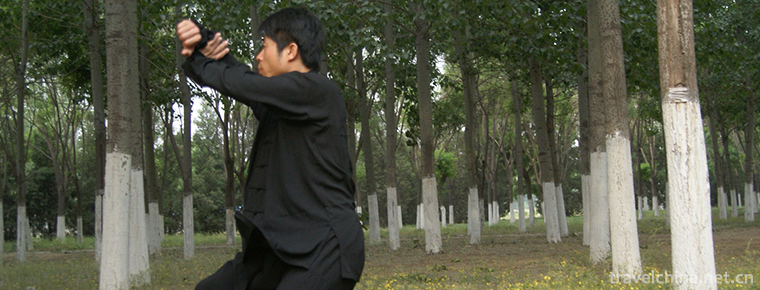
-
Mount Emei
Mount Emei is located in Mount Emei, Leshan City, Sichuan Province, China..
Views: 371 Time 2018-10-13 -
Beijing World Flower Garden
The World Flower Grand View Garden is located on the north side of Nansi Ring Auxiliary Road and the east side of Jingkai Highway in Beijing. It has superior geographical position and convenient trans.
Views: 131 Time 2018-12-26 -
Jiangyou Dou Meishan Scenic Area
Dou Meishan Scenic Spot is an important part of Jianmen Shudao National Scenic Spot. It is 25 kilometers north of Jiangyou City and 170 kilometers away from Chengdu.
Views: 153 Time 2019-01-21 -
Mingshan Scenic Area
Famous Mountain Scenic Area is located on the beautiful bank of Heilongjiang Province, across the river from the Russian Jewish Autonomous Prefecture.
Views: 218 Time 2019-02-07 -
Bouyei Leyou
Le You and Le Lang are Buyi oboe gas song instruments. They resemble suona, bowl-less, insect whistle playing, bright and sweet timbre. It can be used for Solo or singing accompaniment.
Views: 166 Time 2019-04-04 -
Porcelain painting
Porcelain plate painting refers to a kind of planar ceramic handicraft which is manually painted and glazed with special chemical pigments on plain porcelain plate and then.
Views: 239 Time 2019-04-22 -
Shannan Menba Opera
Because Shannan Menba Opera directly adopts Tibetan scripts of Tibetan Opera, it is called "Menba Aguiram" by the people, that is, Menba Tibetan Opera. Legend has it that at the end of the 1.
Views: 156 Time 2019-06-13 -
Brewing Techniques of Shaoxing Yellow Rice Wine
Shaoxing has a long history of brewing wine, which can be traced back to the Spring and Autumn Period and the Warring States Period. By the time of the Northern and Southern Dynasties, it was well-kno.
Views: 161 Time 2019-06-14 -
Siming Nanci
Siming Southern Ci is also called "Siming Documents". A kind of traditional local folk art in Zhejiang Province. Tanci, spoken and sung in Ningbo dialect. It is popular in Ningbo, Zhejiang P.
Views: 186 Time 2019-06-16 -
Linking Luhe boxing
Xinyi Liuhe Quan, also known as Xinyi Quan and Liuhe Quan, is one of the most famous excellent types of boxing in China, which combines fighting, fitness, self-defense and health preservation. It is o.
Views: 144 Time 2019-07-06 -
Ding Zhen becomes popular and half moon looks haggard
Ding Zhen became popular half moon, haggard face, eyes full of bloodshot, confessed that he liked riding and herding cattle most.
Views: 99 Time 2020-12-07 -
Panzhihua from the Ming Dynasty to the Republic of China
In 1382, in the 15th year of Hongwu reign of the Ming Dynasty, the Xuanwei Department of paloros put Yunnan under the jurisdiction of Sichuan Chengxuan political envoys. In this place, there is another commander's Department of Sichuan Xingdu, which leads the lawsuits.
Views: 88 Time 2020-12-14
